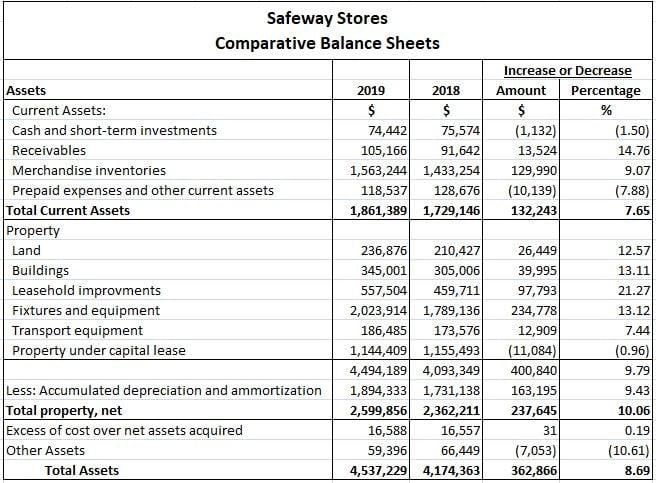The meteoric rise of cryptocurrencies has not only captivated the financial world but has also spurred a proliferation of digital tools designed to navigate this complex landscape. Cryptocurrency applications—spanning from sophisticated trading platforms to intuitive portfolio trackers—promise to simplify the intricate process of buying, selling, and managing digital assets. However, amidst the allure and clamor, discerning value from hype presents a significant challenge. This article delves into the ecosystem of cryptocurrency apps, examining their functionalities, reliability, and potential for financial gain. By dissecting the market’s offerings and highlighting key considerations, we aim to equip readers with the insights needed to judiciously leverage these tools within the volatile realm of digital finance.
Understanding the Core Features of Leading Cryptocurrency Apps
When diving into the world of cryptocurrency apps, it’s essential to understand their key characteristics. User Interface (UI) plays a significant role, as a well-designed UI allows users to navigate the app effortlessly. Clear charts, straightforward menus, and intuitive controls can make all the difference. Security Features are paramount; look for apps that offer two-factor authentication, secure wallets, and regular security updates. Additionally, Fee Structure should be transparent. Apps often charge varying fees for transactions, withdrawals, and conversions, so understanding these costs can help you maximize your gains.
Besides basic features, certain advanced functionalities set leading apps apart. Trading Tools such as real-time market data, price alerts, and prediction tools are highly beneficial for active traders. Educational Resources like tutorials, news updates, and market analyses can empower users with knowledge and improve their trading strategies. Moreover, Customer Support is crucial; accessible and responsive support channels can solve issues swiftly, ensuring a smooth user experience. The following table gives a quick comparison of some popular cryptocurrency apps.
| App | Key Feature | Fee Structure |
|---|---|---|
| App A | User-Friendly Interface | 1% per transaction |
| App B | Advanced Security | 0.5% per trade |
| App C | Real-Time Data | No Fees for Transfers |

Evaluating User Experience: Ease of Use and Security Measures
When exploring cryptocurrency apps, assessing user experience is crucial. Ease of use stands out as a primary factor. Many top-tier apps include intuitive interfaces, real-time data tracking, and seamless transaction processes. Essential features that contribute to a positive user experience often include:
- Clear Navigation Menus: Easily accessible options for trading, investing, and exploring market trends.
- Customizable Dashboard: Personalize what data you see and how it’s displayed.
- Multilayer Authentication: Ensuring that your account is secure yet easy to access by leveraging biometric and two-factor authentication.
Security measures cannot be overlooked when discussing cryptocurrency apps. Protecting your digital assets requires robust security protocols. Consider these elements:
| Security Feature | Benefit |
|---|---|
| Two-Factor Authentication (2FA) | Provides an additional layer of security beyond just a password. |
| Cold Wallet Storage | Keeps assets offline, reducing risk of online hacks. |
| Encryption | Protects data during transmission, ensuring sensitive information is secure. |
By placing emphasis on ease of use and robust security measures, users can confidently navigate through cryptocurrency apps for potential financial gain.

Comparative Analysis: Performance and Fees of Popular Platforms
When evaluating cryptocurrency apps, two crucial factors often top the list: performance and fees. Platforms such as Coinbase, Binance, and Kraken frequently emerge as popular choices. One major differentiator is how quickly these apps can execute trades and update balances. This is particularly important for high-frequency traders. Here’s a brief rundown:
- Coinbase: Highly user-friendly but sometimes known for slower performance during high traffic periods.
- Binance: Generally fast with robust features, but can be complex for beginners.
- Kraken: Strong reputation for security, though the interface can be less intuitive.
The fee structures vary widely and significantly impact your profits. It’s essential to understand the fee breakdown for each trade or transaction. Below is a comparative table:
| Platform | Trading Fees | Withdrawal Fees |
|---|---|---|
| Coinbase | 0.50% | $1.99 (flat fee) |
| Binance | 0.10% | Depends on coin |
| Kraken | 0.26% | $60 (flat fee for USD) |

Strategic Recommendations for Maximizing Crypto Investments through Apps
To optimize your investments using cryptocurrency apps, it’s essential to prioritize ease of use and reliability. Begin by choosing apps with high security standards. Look for features like two-factor authentication (2FA), encryption protocols, and cold storage options. Additionally, consider apps that offer real-time market data and portfolio management tools. This enables you to make informed decisions without needing multiple platforms. Apps that integrate cryptocurrency news can also provide valuable context for your buying or selling strategies.
Another crucial aspect is fee transparency. Many apps charge transaction fees, withdrawal fees, or even deposit fees. Select apps that offer a clear and understandable fee structure. Here’s a quick comparison to guide your choice:
| App | Transaction Fee | Security Features |
|---|---|---|
| App A | 1.5% | 2FA, Encryption |
| App B | 0.75% | 2FA, Cold Storage |
| App C | 1.0% | Encryption, Real-time Alerts |
Opt for applications that offer low fees without compromising security. This ensures you get the best value for your investments while keeping them safe.
Q&A
## Q&A: Navigating Through the Hype of Cryptocurrency Apps for Financial Gain
Q: What are cryptocurrency apps and how have they evolved in recent years?
A: Cryptocurrency apps are software platforms designed to facilitate various activities related to digital currencies, such as trading, management, and tracking of crypto assets. Initially, these apps were primarily focused on basic trading functionalities. However, as the cryptocurrency ecosystem has matured, they have evolved to include features like integration with traditional banking systems, real-time market analytics, security protocols like two-factor authentication, and even automated trading bots.
Q: What key features should users look for when selecting a cryptocurrency app?
A: Users should prioritize security features such as two-factor authentication, end-to-end encryption, and insurance for stored assets. Additionally, a user-friendly interface, a wide array of supported cryptocurrencies, real-time market data, and low transaction fees are crucial. Advanced users might also look for features like margin trading, staking options, and integration capabilities with other financial tools.
Q: Are there any regulatory concerns users should be aware of when using these apps?
A: Yes, regulatory concerns are significant in the cryptocurrency space. Users need to ensure that the app they choose complies with the regulations of their specific country or region. This includes verifying that the app has proper licenses and adheres to Know Your Customer (KYC) and Anti-Money Laundering (AML) regulations. Failure to comply with these can result in legal repercussions and the potential loss of assets.
Q: How can users mitigate the risks associated with using cryptocurrency apps?
A: To mitigate risks, users should conduct thorough research before selecting an app, including reading reviews and checking for any past security breaches. Utilizing hardware wallets for storing large amounts of cryptocurrency can add an extra layer of security. Users should also regularly update their apps to the latest versions and stay informed about new security threats and vulnerabilities.
Q: What role do these apps play in the broader financial landscape?
A: Cryptocurrency apps play a pivotal role in the broader financial landscape by democratizing access to digital assets and decentralized finance (DeFi). They allow individuals to participate in the global financial system without the need for traditional banking infrastructure. This can result in greater financial inclusion, particularly in regions with less developed financial systems. Additionally, these apps are helping to drive innovation in financial services by promoting transparency, efficiency, and lower transaction costs.
Q: Can these apps help users achieve substantial financial gain, and what factors influence this?
A: While cryptocurrency apps can provide opportunities for substantial financial gain, especially in a volatile market, they also come with significant risks. Key factors influencing potential gains include market conditions, the specific cryptocurrencies invested in, the timing of trades, and the user’s level of expertise and risk tolerance. It’s important for users to approach these investments with a well-informed strategy and to diversify their portfolio to mitigate potential losses.
Q: What future developments can we expect to see in cryptocurrency apps?
A: Future developments in cryptocurrency apps are likely to focus on enhanced security measures, greater interoperability with traditional financial systems, and the integration of artificial intelligence for predictive analytics and automated trading strategies. We may also see more features that facilitate decentralized finance (DeFi) operations, such as lending, borrowing, and liquidity provision directly through the app interface. As blockchain technology evolves, these apps will likely offer more robust and adaptive functionalities, maintaining their relevance in the rapidly changing financial landscape.
Q: How do these apps handle the issue of transaction speed and scalability?
A: Transaction speed and scalability are critical issues in the cryptocurrency space. Many apps are now integrating second-layer solutions like the Lightning Network for Bitcoin or adopting blockchains with higher throughput capabilities such as Solana or Polkadot. Additionally, some apps are incorporating batch processing and off-chain transactions to improve efficiency. These technological advancements help to handle a higher volume of transactions while maintaining lower fees and faster processing times.
Q: What impact does the adoption of cryptocurrency apps have on traditional financial institutions?
A: The adoption of cryptocurrency apps is driving a paradigm shift in the financial industry. Traditional financial institutions are increasingly exploring blockchain technology and digital assets to stay competitive. This is leading to a trend of convergence where traditional banking services incorporate crypto functionalities, such as offering crypto investment accounts and facilitating blockchain-based transactions. The pressure to innovate and adapt is pushing financial institutions towards greater transparency, lower costs, and enhanced security measures, ultimately benefiting the end consumers.
To Wrap It Up
the rapid proliferation of cryptocurrency applications presents a compelling frontier for both financial technology and individual investment portfolios. However, as with any burgeoning field, it is vital for users to navigate through the inherent hype with a discerning perspective grounded in rigorous analysis. While the promise of substantial financial gain is real, so too are the risks and complexities that accompany the adoption of these innovative tools.
For those looking to leverage cryptocurrency apps, a methodical approach—encompassing comprehensive research, risk management strategies, and a vigilant eye on regulatory developments—is indispensable. The dynamism of the cryptocurrency landscape requires an adaptive mindset, ensuring that users can capitalize on opportunities while mitigating potential pitfalls.
As the ecosystem continues to evolve, staying informed and exercising due diligence will remain critical factors in harnessing the full potential of cryptocurrency applications for financial advancement. By balancing enthusiasm with prudence, stakeholders can navigate the crypto space with a level of confidence that is both informed and strategic.



[…] into the complexities of the market. But even experienced investors can appreciate the ease and low fees of […]